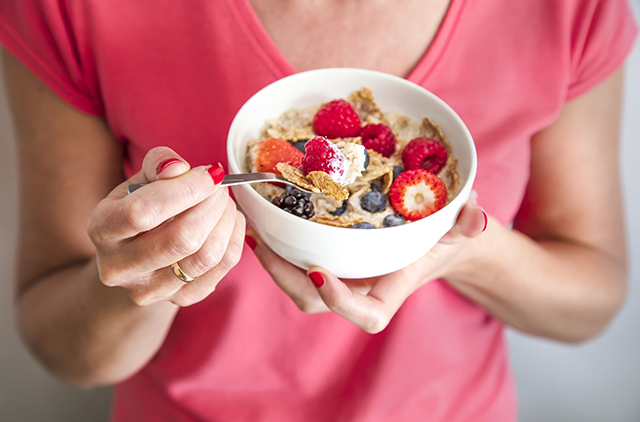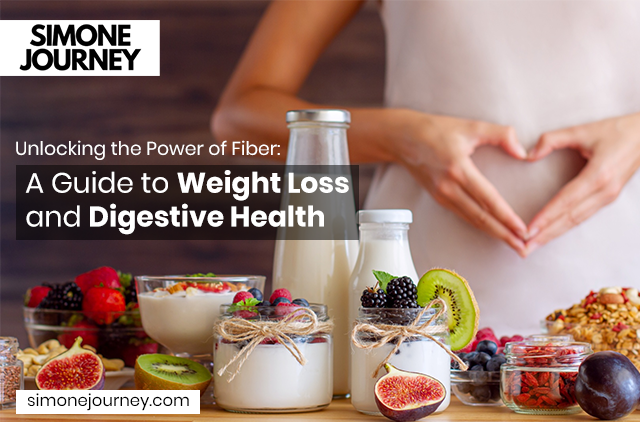When it comes to improving your health and losing weight, one of the most powerful natural helpers often gets overlooked: fiber. While fiber is commonly known for its digestive benefits, it actually plays a key role in keeping you at a healthy weight and promoting overall well-being. In this article, we’ll delve into the advantages of fiber, how it aids in weight loss, and simple ways you can add more of it to your diet to boost your digestive health.
Understanding Fiber
Fiber is a special type of carbohydrate that is present in plant-based foods. Unlike other carbs, fiber cannot be digested or absorbed by the body. Instead, it moves through the digestive system without being broken down. There are two main types of fiber: soluble and insoluble.
Soluble Fiber: Soluble fiber dissolves in water to form a gel-like substance in the digestive tract. This type of fiber is known for its ability to lower cholesterol levels and regulate blood sugar levels. Good sources of soluble fiber include oats, barley, legumes, fruits (such as apples and oranges), and vegetables (like carrots and broccoli).
Insoluble Fiber: Insoluble fiber doesn’t dissolve in water and adds bulk to your stool, aiding in regular bowel movements and preventing constipation. Whole grains, nuts, seeds, and the skins of fruits and vegetables are rich sources of insoluble fiber.
The Role of Fiber in Weight Loss
Fiber is like the unsung hero in the fight against extra pounds, and it’s got some pretty cool ways of helping you shed them. Here are few:
Increased Satiety: Fiber-rich foods are more filling and tend to keep you satisfied for longer periods. This means you’re less likely to overeat or snack on unhealthy foods between meals. Including fiber in your meals can help you consume fewer calories without feeling deprived.
Slower Digestion: Fiber slows down the digestion process, helping to control the release of sugar into the bloodstream. This prevents sudden spikes in blood sugar levels that can trigger cravings and overeating. Slower digestion also leads to longer-lasting feelings of fullness.
Reduced Caloric Density: Many high-fiber foods are low in calories but high in volume. This means you can enjoy a larger portion without taking in excess calories. For instance, a bowl of vegetable soup or a fiber-rich salad can be satisfying while remaining relatively low in calories.
Enhanced Nutrient Absorption: Fiber promotes the absorption of nutrients from other foods. By improving nutrient absorption, your body gets the most out of the foods you eat, which can contribute to overall health and well-being.

Improving Digestive Health with Fiber
In addition to aiding in weight loss, fiber plays a crucial role in maintaining digestive health. Here’s how fiber benefits your digestive system:
Prevents Constipation: Insoluble fiber adds bulk to your stool, making it easier to pass through the digestive tract. This helps prevent constipation and promotes regular bowel movements. Increasing your fiber intake is often the first recommendation for individuals suffering from constipation.
Supports Gut Health: Fiber acts as a prebiotic, providing fuel for the beneficial bacteria in your gut. These bacteria play a vital role in maintaining a healthy digestive system and immune function. By nourishing these good bacteria, fiber helps promote a balanced gut microbiome.
Reduces the Risk of Digestive Disorders: A diet high in fiber has been linked to a reduced risk of various digestive disorders, including diverticulitis, hemorrhoids, and irritable bowel syndrome (IBS). The regularity provided by fiber helps keep the digestive system functioning optimally, reducing the likelihood of these conditions.
Tips for Increasing Your Fiber Intake
Now that you understand the importance of fiber for weight loss and digestive health, here are some practical tips to help you incorporate more fiber into your diet:
Eat Whole Grains: Substitute refined grains like white bread and pasta with whole grain options like whole wheat bread, brown rice, quinoa, and oats.
Load Up on Fruits and Vegetables: Prioritize fruits and vegetables in your meals and snacks. Strive to fill half of your plate with these nutritious options at each meal.
Choose Legumes: Include beans, lentils, chickpeas, and other legumes in your diet regularly. Add them to soups, salads, stir-fries, and casseroles for a fiber boost.
Snack on Nuts and Seeds: Snack on nuts and seeds like almonds, walnuts, chia seeds, and flaxseeds for a nutritious and fiber-rich snack.
Read Food Labels: Check the fiber content on food labels and choose products with higher fiber content. Foods that contain at least 3 grams of fiber per serving are considered good sources of fiber.

Conclusion
Absolutely! Fiber offers numerous benefits for your body, including weight management and digestive health. If you’re looking to lose weight and improve your overall well-being, incorporating fiber-rich foods into your diet is a great way to go. You don’t have to make drastic changes all at once; simply start by gradually increasing your fiber intake with each meal. Over time, you’ll experience the positive effects of a fiber-filled diet and enjoy the benefits it brings.










